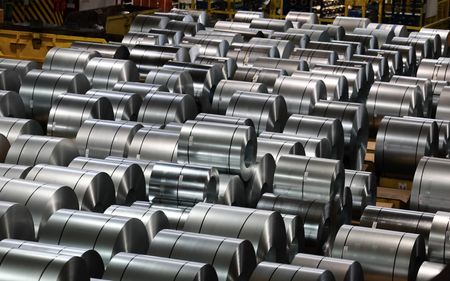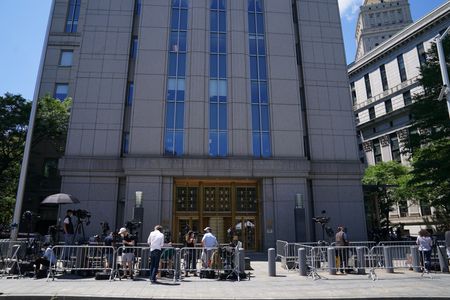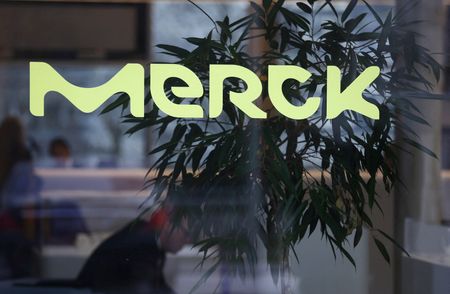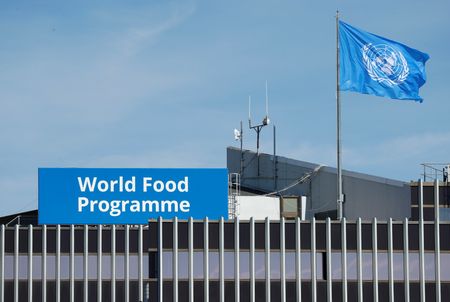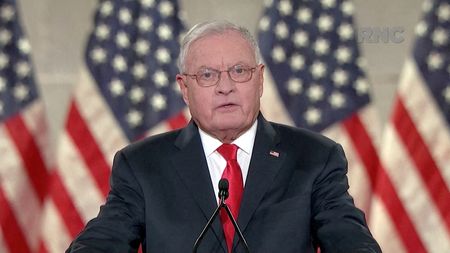By Shivansh Tiwary, Medha Singh and Chibuike Oguh
NEW YORK (Reuters) -Shares of U.S. steel and aluminum producers rose on Monday, while their European and Asian counterparts fell a day after President Donald Trump announced plans to impose fresh metal import tariffs.
On Sunday, Trump said he would impose a 25% tariff increase on all steel and aluminum imports into the U.S. on top of existing duties and a further set of reciprocal tariffs later in the week. He was expected to unveil the new tariffs on Monday or Tuesday.
American producers gained. Cleveland-Cliffs jumped nearly 18%, Nucor added nearly 6%, and Steel Dynamics rose nearly 5%. Century Aluminum added 10%, Alcoa rose 2.2% and U.S. Steel gained nearly 5%.
“It’s not surprising that the companies that would directly benefit from this are experiencing market gains right now, that happened last time, although those gains were lost as global market realities eventually catch up with these firms,” said Christine McDaniel, senior research fellow at Mercatus Center and a former Deputy Assistant Secretary at the Treasury Department.
American steelmakers have been grappling with subdued demand for their products as an influx of cheaper imports forced them to cut prices and idle mills.
Nearly a quarter of all steel used in the U.S. is imported, with the bulk of it from neighboring Mexico and Canada or close allies in Asia and Europe such as Japan, South Korea and Germany.
Steel manufacturers are trying to bring their supply chain closer or into the U.S. to offset the impact of a tariff hike, which Citi Research said would raise import costs by about $150 per ton.
“Tariffs give them a temporary advantage but then you can’t really escape the reality of the global marketplace plus U.S. manufacturers who consume steel and aluminum are now facing higher prices,” McDaniel said.
ArcelorMittal, the world’s second-largest steelmaker, is planning to build a manufacturing facility in Alabama to supply to the automotive sector, one of the largest buyers of domestically produced steel. South Korea’s Hyundai Steel also plans a plant in the U.S.
Shares of ArcelorMittal and Voestalpine fell 2% each, while Germany’s Thyssenkrupp and Salzgitter were trading flat.
Additional tariffs on aluminum imports should boost U.S. domestic production to around 1 million metric tons a year from nearly 750,000 metric tons, J.P.Morgan analysts said, similar to the rise seen during the 2018 tariff war.
Shares of Asian steel producers also fell, with India’s Tata Steel down 3.2% and JSW Steel down 2.3%.
The U.S. will still depend heavily on imports to meet its annual aluminum demand of about 5 million metric tons. The metal is widely used in the aerospace sector, which has been grappling with supply chain challenges.
In his first term, Trump imposed tariffs of 25% on steel and 10% on aluminum, but later granted several trading partners duty-free exemptions, including Canada, Mexico and Brazil.
“The higher tariffs at that time were associated with the higher producer prices and raising the input cost, and it did also save some jobs in steel and aluminum but it cost a lot more jobs in the downstream sectors,” McDaniel added.
(Reporting by Chibuike Oguh, Christoph Steitz, Paolo Laudani, Isabel Demetz, Medha Singh, Shivansh Tiwary and Aatreyee Dasgupta; Editing by David Goodman, Saumyadeb Chakrabarty, Arun Koyyur and David Gregorio)

